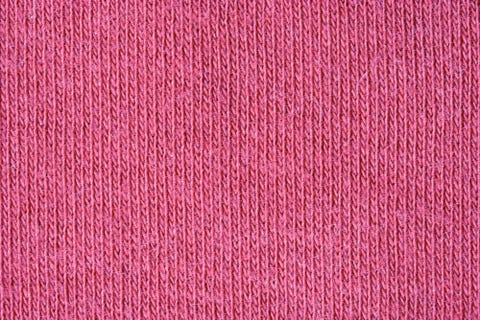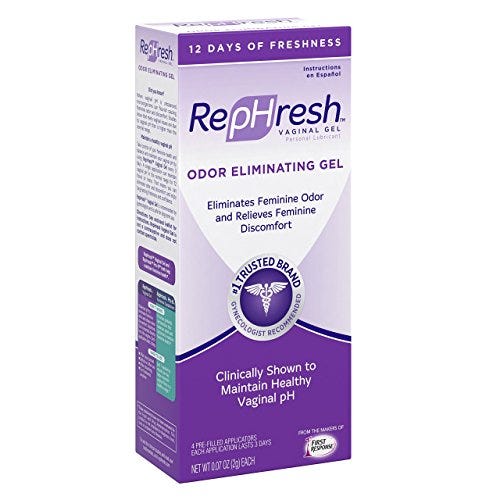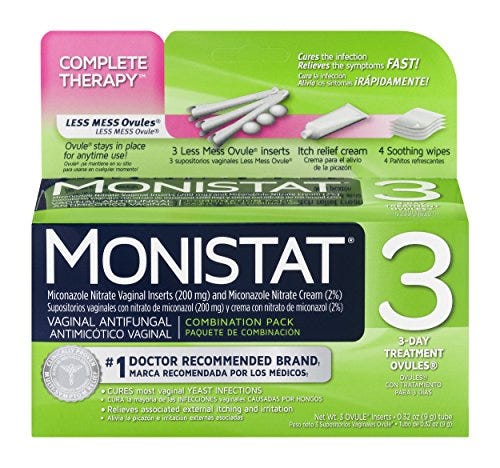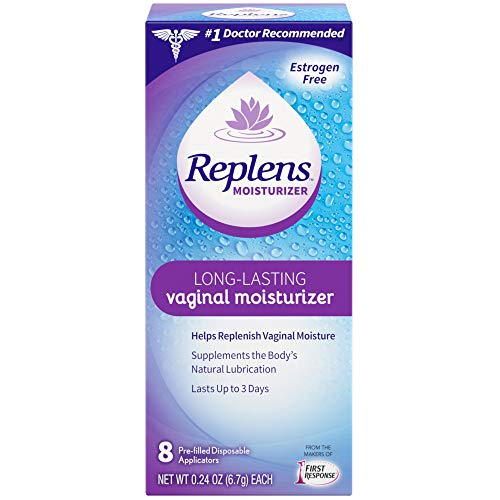
Of all the places that can get itchy, red, and irritated on your body, your vagina might rank as the absolute worst—I mean, it’s not exactly easy to scratch down there.
But what’s even more frustrating than doing the crotch-itch dance in public, is not knowing why your vagina’s itchy in the first place (is it a yeast infection? Or…crabs?).
Truthfully, there are tons of reasons why it feels like a wool sweater is permanently attached to your vagina. Here are a few things that might be causing the itch—and how to take care of it for good.
1. Bacterial vaginosis

Bacterial vaginosis (BV) is a pretty common condition caused by bacterial overgrowth and a pH imbalance in the vagina.
But itching actually isn’t the primary symptom—the hallmarks are actually a loose discharge, strong odor, and general irritation (though it definitely can make you itchy too), says Mary Jane Minkin, clinical professor of obstetrics, gynecology, and reproductive sciences at Yale University.
To treat it, you can try an OTC medication like RepHresh to make your vagina more acidic, according to Minkin—acid in the vagina is actually a good thing, as it kills off bad bacteria, she says. If that doesn’t work, your doc might prescribe antibiotics.
3. Eczema or psoriasis
“Skin conditions like eczema and psoriasis can occur due to an allergy or autoimmune issue,” says Natasha Chinn, M.D., FACOG, and ob-gyn with Brescia & Migliaccio Women’s Health in New Jersey. “Eczema often appears in the crevices of arms, in folds, the groin area, and on the labia, and psoriasis can also present on the vagina.”
Most people with eczema and psoriasis are well-versed in the appearance (and treatment) of these red, patchy rashes, but if you’ve never had the symptoms before, make an appointment with your doctor. Both conditions can be managed if they’re flaring up, and Chinn says that psoriasis can sometimes warrant a prescription for an oral pill or a topical cream.
4. Contact dermatitis
Ever try a new moisturizing cream and wind up with dried out, flaky, or rashy skin a few days later? Well, guess what: The same thing can happen to your vagina. “Soaps, detergents, and bubble baths, a new kind of underwear—really any new products at all that come in contact with your vagina [can cause itching],” explains Minkin.
If your vagina feels itchy and irritated, but you don’t have any other symptoms, it’s worth thinking about whether you’ve recently started using any new products. Pads and tampons, condoms and lubricants, shaving products, and even toilet paper can all be to blame (basically anything with added perfumes or chemicals, so stick with hypoallergenic stuff if you’re sensitive).
In the meantime, stop using whatever you think is bugging you, treat the itch with an epsom salt bath or an OTC hydrocortisone cream applied externally, and wait a few days to see if the itch resolves. If not, go see your doctor.
2. Yeast infections

Vaginal yeast infections, i.e. overgrowths of the fungus Candida, are probably the first thing people think of when they feel that telltale itching. “A cottage cheese-like discharge, redness around the labia and vulva, and itching are all classic signs of a yeast infection,” Minkin says.
But she also notes that only about one-third of women who experience itching and irritation truly do have a yeast infection. The easiest way to tell which category you fall into is to use an OTC treatment like Monistat; Minkin says that if you really do have a yeast infection, it should do the trick; if it doesn’t, check in with your provider.
5. Sexually transmitted diseases (STDs)
Okay, let me preface this by saying itching isn’t really a classic symptom of most STDs, though it can sometimes be a first sign that something is up, says Minkin. From there, symptoms may progress to burning, painful urination, smelly discharge, sores on your genitals, or painful intercourse, at which point you should definitely head to your ob-gyn for a vaginal culture.
One kind of STD, though, is often associated with itching: genital warts. “Genital warts are lesions on the skin and are generally caused by the low risk types of HPV,” says Chinn. “This type of STD can shift the pH in the vagina, which then causes dryness and itching.”
You can’t completely cure genital warts, per the Centers for Disease Control and Prevention (CDC), but you can treat the symptoms and work with a doctor to lessen outbreaks. As for other STDs, antibiotics usually work to get rid of them. But whatever you think you might have, it’s important to get it checked out by a doctor and not self-treat.
6. Pubic lice
No one wants to think about bugs crawling around on any part of their body, but especially not down there. Unfortunately, that’s exactly what pubic lice (a.k.a., crabs) is: an easily transmittable infestation of little bugs in your genitals that makes you itch like crazy. There’s two reasons for the itching, says Chinn: bites from the crabs and the eggs (nits) they lay on your skin, both of which cause irritation.
Fun fact: You can get pubic lice from hotel room sheets.
Now for the really bad news: having sex isn’t even the only way to get pubic lice. “They’re passed from skin to skin,” says Chinn. “[For example], you go to a dirty hotel and there are nits or lice in the sheets you slept on, and then you go home to your partner and have sex. Or maybe you loan your sister your pants and [she] had them, then you wear the pants and the crabs crawl into the vaginal area.”
Though treatable with an OTC medication like permethrin cream (just like head lice), the morals of the story here are as follows: practice safe sex, read hotel ratings carefully, and maybe don’t let anyone borrow your pants.
7. Lichen sclerosus
Another dermatology issue, like eczema or psoriasis, lichen sclerosus is a patchy white rash that causes intense itching and often pops up in your genital area (though it can appear on other parts of the body, too). It can be treated with a prescription-strength topical steroid, but Minkin says a lichen sclerosus rash can often mimic vulvar cancer, so its appearance may complicate things a little.
“In young women, it’s more likely to be lichen sclerosus than cancer, but I’ll often bring patients back in a few weeks to see how it’s looking, especially if they are older,” says Minkin. “We want to make sure we’re not missing cancer, so if it hasn’t cleared up with steroids, I may do a biopsy to scan it.”
8. Hormonal changes and perimenopause

When your hormones fluctuate during your menstrual cycle, you might end up with drier vaginal tissue than normal, which can cause itching. But Minkin points out that perimenopause (a.k.a., that time period before you actually start menopause) is a more common reason for vaginal dryness and itching, thanks to the drop in estrogen.
An OTC moisturizer like Replens can provide relief from internal itching for three days, Minkin says, and your provider can give you a prescription estrogen cream for any external itching.
9. Urinary tract infections
A urinary tract infection (UTI) is a bacterial infection that crops up anywhere in your urinary tract (read: kidneys, urethra, ureters, and bladder), and will commonly cause pelvic pain, a strong urge to pee, a burning sensation when you pee, and cloudy or foul-smelling urine.
But Minkin confirms that it can also cause itching in the form of a tingling, irritated sensation, especially if the infection is located near your urethra. You need to snag an appointment with your doctor and get a urinalysis to check for the presence of bacteria (which an antibiotic can clear up).
10. Beauty treatments
In the past few decades, women have grown more preoccupied with the appearance of their vulvas, says Minkin—something she attributes to the trend of having less hair down there. Which means many women have also tried out some pretty unconventional beauty treatments, like activated charcoal vulva masks (basically a facial for your vagina) and vaginal steaming.

Minkin says these are a no-no, not only because they’re totally unnecessary, but because they can cause reactions in the form of itching and irritation.“The vulva tissue is the most sensitive, delicate tissue in the body,” she says. “Treat it with respect and a gentle hand. The less stuff you do to it, the better.”
11. Tanning bed burns
Okay, first of all why are you going to tanning beds in the first place?! Not only can they give you skin cancer, but tanning in the nude can give you a vagina burn. Yes, a vagina burn. “Redness and peeling of the skin causes itching—that’s what tends to happen when women go to a tanning bed,” says Chinn.
So yeah, just don’t do this in the first place, please. But if you do somehow end up with a burn downstairs, Chinn says you can mix a little aloe vera with coconut oil or tea tree oil and apply it topically (it’s perfectly safe for the vaginal area).
12. Waxing or shaving irritation
Your bikini area is just as sensitive—if not more so—to razor burns and irritation from shaving or waxing your hair. “When we wax or shave anywhere on the body we disrupt the skin’s integrity,” says Chinn. “Redness, itching, and burning can occur if you’re sensitive to it.”

Chinn recommends applying hypoallergenic cream or lotions to protect the skin, as well as keeping it dry and clean. If it’s becoming an ongoing problem for you, you may have to stop waxing, wax less frequently, or change up your shaving products to something gentler on your skin, she adds.
Source: Read Full Article



